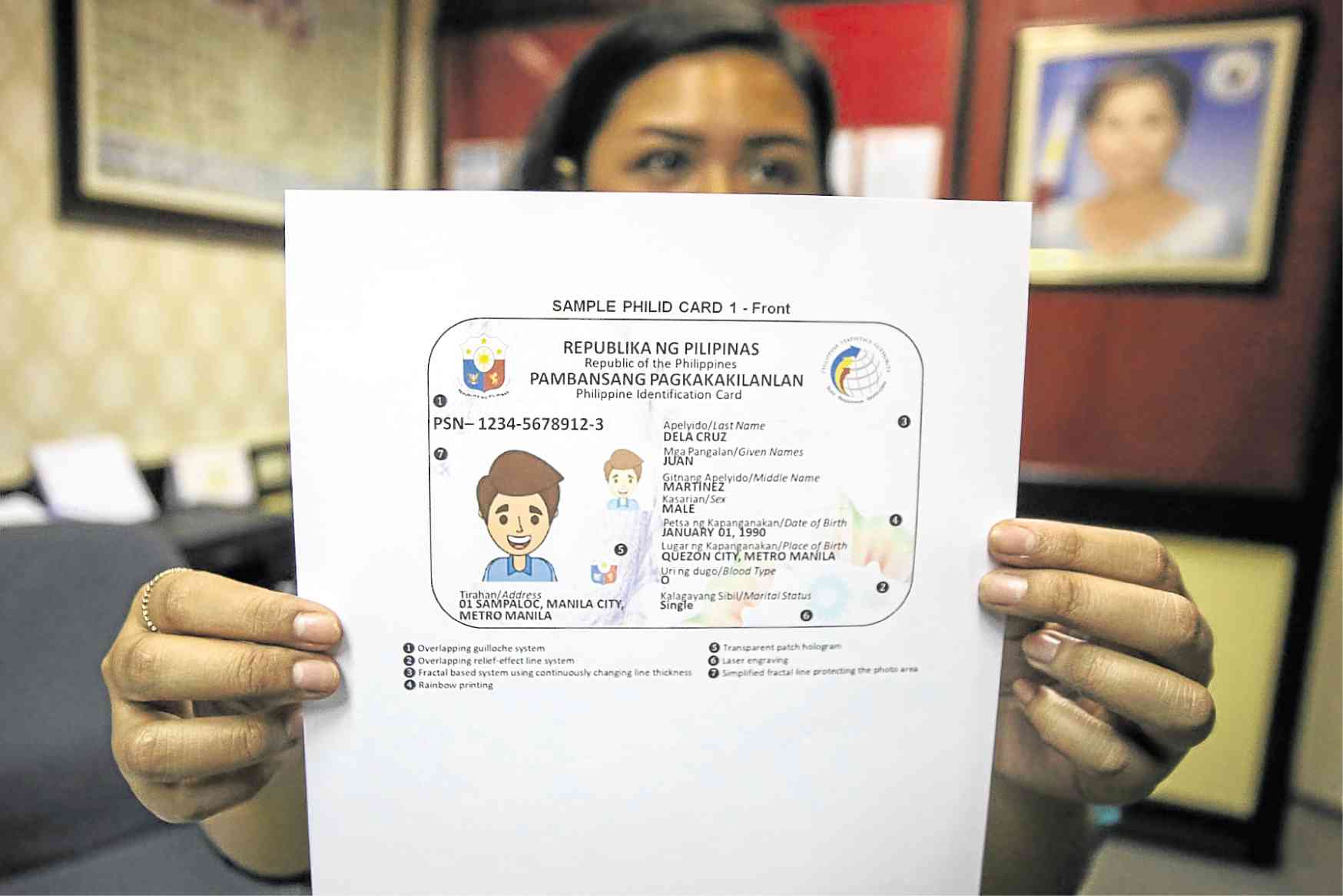
JAM STA. ROSA/INQUIRER FILE PHOTO
President Marcos has ordered the National Economic and Development Authority (Neda) to speed up the printing and distribution of the national Philippine Identification System (PhilSys) cards, Press Secretary Trixie Cruz Angeles said on Thursday.
The President himself gave the directive to Socioeconomic Planning Secretary Arsenio Balisacan on Wednesday.
“During our meeting with Neda Director General Arsenio Balisacan, we discussed ways to hasten the printing and distribution of national ID cards so that they can be used by our countrymen in the early part of 2023,” Mr. Marcos said in a Facebook post.
Angeles said the national ID, called Philippine ID, or PhilID, would be beneficial for the banking system, the establishment of small businesses or any other businesses.
“The primary purpose [of the meeting] is really the national ID system. That is part of our economic recovery, so the national ID is necessary, it is essential,” she said.
In December 2021, the Philippine Statistics Authority (PSA) said 50.01 million Filipinos had signed up for their PhilSys cards. But as of June this year, only 14.3 million cards have been distributed.
The PSA and the Bangko Sentral ng Pilipinas (BSP) have served notice to banks that they must accept the PhilID for all transactions following complaints that some banks refused to accept them because they lacked images or prints of their owners’ signatures.
Report bank refusal
PSA chief and National Statistician Dennis Mapa recently pointed to PhilSys Check, the online authentication and verification system for PhilIDs launched in April, that banks could use to verify the identity of the ID bearers.
Mapa said the BSP as regulator of the banking industry also monitors PhilSys Check.
Customers who use PhilIDs should file complaints to the BSP against banks that refuse to provide them services, Mapa said. He noted, however, that the number of complaints had been declining and were now down to only three to five per week.
Mapa said these complaints were coming mostly from bank customers outside Metro Manila and they were due to delays in the adoption of PhilIDs by small rural banks.
He admitted that at the start, they received a “substantial” number of complaints about banks rejecting PhilIDs.
It helped, he said, that the BSP issued a memorandum last year ordering financial institutions, both banks and nonbanks, to include the national ID among valid IDs that may be used as sufficient proof of identity to open a bank account or transact business.
More security
In February this year, Marcos’ predecessor, Rodrigo Duterte, issued Executive Order No. 162, directing all government agencies as well as private institutions to accept PhilID for transactions.
The BSP had said that using PhilIDs was more secure than manually matching handwritten signatures.
The former President’s son, Davao City Rep. Paolo Duterte, on Thursday also called on the PSA and BSP to find ways to hasten the PhilSys project, which he said would reduce red tape and facilitate the delivery of basic services, and would complement a bill to mandate online government transactions.
According to Duterte, the project and the national IDs would help identify genuine beneficiaries of social services who need cash aid, making the delivery of financial assistance “swift and efficient.”
“A well-maintained national ID system will help the government clean up its database of beneficiaries of social protection programs, such as the 4Ps (Pantawid Pamilyang Pilipino Program),” he said, adding that it could weed out people who are disqualified from social aid programs.
“We urge the BSP and PSA to come up with a good catch-up plan to speed up the implementation of this vital project,” Duterte said.
Sen. Grace Poe has also lamented the long wait of six months to over a year to get the national ID, saying that this was “unjustifiable.”
Poe said that the national ID could have been used to fast-track the distribution of cash aid, fuel vouchers, health benefits and other basic services for Filipinos during the pandemic.